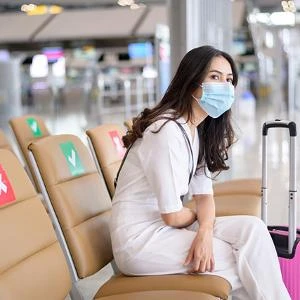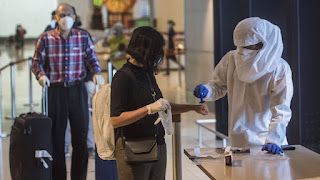The COVID-19 Variants: How Do We Stay Safe?
As the world battles to increase COVID-19 vaccinations, the development of new virus strains has left many countries considering what these variants mean for pandemic response efforts both now and in the future.
What are the COVID-19 variations? All viruses transform over time, adjusting to their current circumstance and working on their endurance. These new strains are called variants.
In May 2021, the World Health Organization (WHO) introduced a new naming system for COVID-19 Variants using letters of the Greek alphabet. The Alpha variant, for example, was first detected in the United Kingdom, Beta in South Africa, Gamma in Brazil, and Delta in India. The system improves on open revealing of the strains and minimizes the discriminatory practice of naming variations after the places where they are detected.
The WHO classifies Variants as variants of interest and variants of worry to focus on worldwide observing and research. Variations of interest have shown genetic changes that affect virus characteristics and may reduce the immune system capacity to prevent infection.
Variations of concern have shown increased transmissibility, are bound to sidestep identification, and are less receptive to immunizations and therapeutics. They may also lead to expanded illness seriousness and are viewed as more dangerous. These incorporate Alpha, Beta, Gamma, and Delta.
The Delta variant has turned into the fastest spreading variation in the world. It initially showed up in late 2020 and led to the dramatic increase in COVID-19 cases across India and the United Kingdom. As of August 2021, Delta has been recognized in around 130 nations and is presently driving an outstanding flood in cases across the United States, Europe, Asia, and the Pacific.
Proof shows that the Delta variation is not just more transmissible, it also prompts more hospitalizations and death- especially among the unvaccinated. While data is still arising, immunizations have demonstrated protection against major illness and demise brought about by Delta after two dosages, with transmission among vaccinated-so - called breakthrough cases - having a tendency to be less serious sickness and requiring significantly fewer hospitalizations.
For nations with limited vaccinations, COVID-19 is turning into a pandemic of the unvaccinated. Delta presents the greatest risk to these nations, especially those with poorly equipped wellbeing facilities.
Confronted with the current reality, the best strategy to end this pandemic will be for countries to apply the good practices and lessons gained from the last year and a half. These include:
Knowing their pandemic. This includes a focus on Day 2 test and understanding where infections are spreading.
Securing vaccines. Despite their limited availability, vaccines remain the single best protection against COVID-19.
Encouraging infection prevention and control measures like masking, social distancing, and avoiding large crowds.
Fortifying healthcare infrastructure and strengthening health systems in several areas have proven critical during the current pandemic.
Wealthy countries with high rates of immunization should not be lulled into a false sense of security—vaccinating their populations and offering boosters while less-resourced countries have an inadequate supply of vaccines. If they do, new variants will emerge from less vaccinated countries and spread to wealthy countries, threatening a return to normal life for everyone.
Book your Day 2 UK arrivals test with us today and fly securely. If you have concluded that your business trip is a must. You need a covid test from a private center. At the corona test center, our clinical experts are prepared to assist you with your fitness to fly certificates. We offer rapid results for all the covid 19 tests and full guidance to reassure you.




Comments
Post a Comment